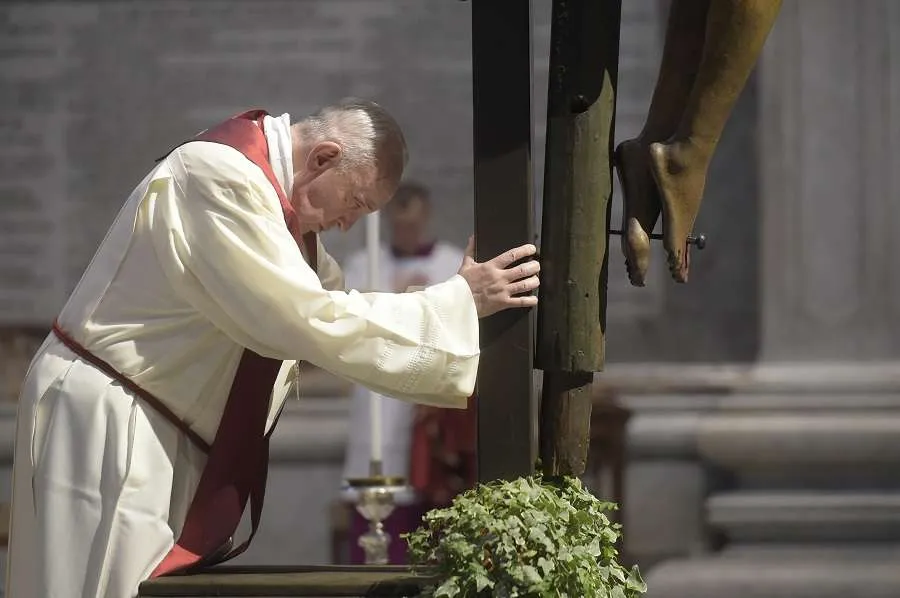“This is what God has done: on the cross he drank, in front of the whole world, the cup of pain down to its dregs. This is how he showed us it is not poisoned, but that there is a pearl at the bottom of this chalice,” he stated.
Cantalamessa has been the apostolic preacher, or preacher to the papal household, since 1980.
At the beginning of the liturgy for the Lord’s Passion, Pope Francis lay prostrate on the floor of St. Peter’s Basilica in front of the miraculous crucifix of the Church of San Marcello al Corso.
He then listened to the scripture readings, including the passion account in the Gospel of St. John.
Preaching after the Gospel reading, Cantalamessa pointed to the Word of God as having the answer to the present pain and suffering of the coronavirus pandemic.
“What we have just listened to is the account of the objectively greatest evil committed on earth,” he said, explaining that “the cross is better understood by its effects than by its causes.”
“And what were the effects of Christ’s death? Being justified through faith in him, being reconciled and at peace with God, and being filled with the hope of eternal life!” he said.
“Did God the Father possibly desire the death of his Son in order to draw good out of it?” Cantalamessa said. “No, he simply permitted human freedom to take its course, making it serve, however, his own purposes and not those of human beings.”
He added that the same is true of natural disasters like earthquakes and plagues. God does not bring them about, but he has given nature a form of freedom, different from that of human freedom, he stated. God allows nature “to evolve according to its own laws of development.”
“The pandemic of the coronavirus has abruptly roused us from the greatest danger individuals and humanity have always been susceptible to: the delusion of omnipotence,” Cantalamessa said, noting that scripture teaches us that during difficult times, the first thing we should do is “cry out to God.”








